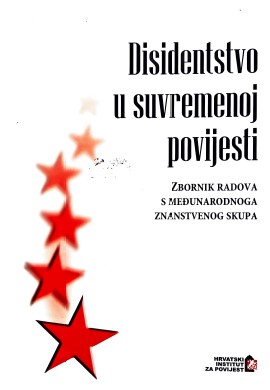Disidentstvo kao istraživačka tema – pojam i pristupi
Dissidence as a Research Theme – Concepts and Approaches
Author(s): Katarina Spehnjak
Subject(s): Political history, Government/Political systems, Political behavior, Post-War period (1950 - 1989), Transformation Period (1990 - 2010), History of Communism, Cold-War History
Published by: Hrvatski institut za povijest
Keywords: dissidence; concept; Cold War; Croatia; Yugoslavia;
Summary/Abstract: The concept of “dissidence’’ is most often used to denote critical activities directed toward the communist governments of the countries of Eastern Europe and Yugoslavia in the time after Stalin’s death. Its connection to the politics of the Cold War speaks to the fact that the definition was subjected to the widest interpretations and that dissidents were considered individuals or groups ranging from deserters from the communist movement to all those who were dissatisfied with one party rule. From a research point of view the selection of the best definition complicates the politicization of the historical context to which dissidence belongs, the question of value judgments, the problem of “measuring’’ dissident activities, and the personal perceptions of participants/dissidents. For the purposes of this conference a suitable definition of dissidence is any activity which attempted to constitute an autonomous public sphere outside of the official institutions of the party state and by which it opposed the desire of the regime to completely control the public sphere. This opens the possibility of analyzing the complexity of the mosaic of themes exploring different segments of activism in politics and culture: critical approaches, creative detachment from prevailing or official positions – whether the fruit of personal initiative or a group of like-minded individuals – in the recent past. While on a theoretical level dissidence is relatively clear, the attempt to apply some of the concepts in the analysis of historical practice in Croatia/Yugoslavia, or to compare these to situations in other countries of realist socialism, raises many uncertainties, which indicates caution in using historiographical models without regard to specific historical context or period.
Book: Disidentstvo u suvremenoj povijesti
- Page Range: 11-21
- Page Count: 11
- Publication Year: 2010
- Language: Croatian
- Content File-PDF

